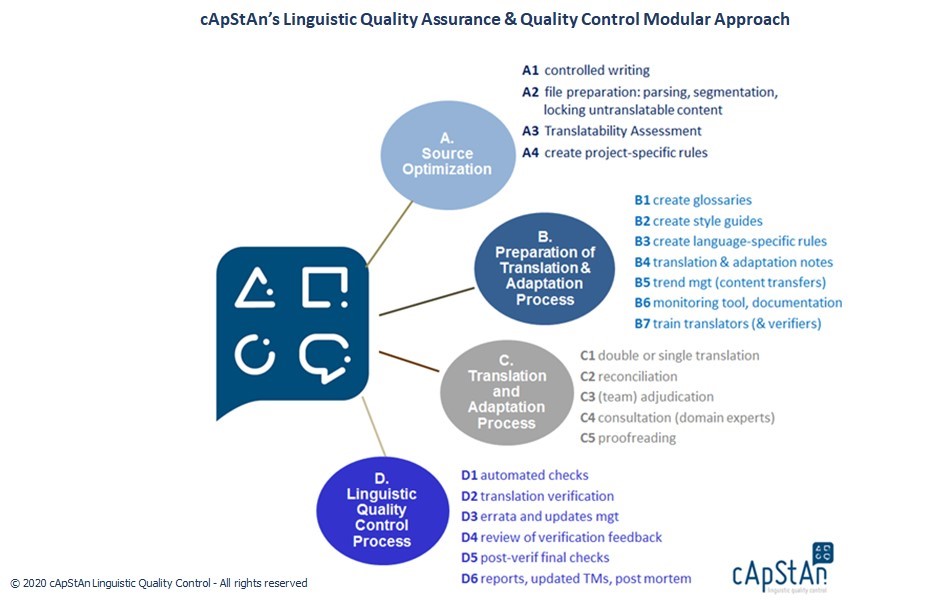
Rejection of patent filing could have been avoided with a translatablity assessment
by Pisana Ferrari – cApStAn Ambassador to the Global Village
A patent filing by Swiss pharma company IBSA (Institut Biochimique S.A.) has been rejected in a US Court ruling which found that the certified English translation of the Italian term semiliquido was “indefinite”, as the English term “half-liquid” could be construed as several things. This ruling, reported in an article on Slator, highlights how complex and rigorous pharmaceutical translations can be. The same can be said, of course, for any other content where the stakes are high, in particular where multiple languages and cultures are concerned, as in 3MC surveys, for example. Cross-cultural adaptation and validation of data collection instruments requires a robust test design that will ensure that multiple language versions meet the highest standards of linguistic, cultural and functional equivalence. In our 20+ year experience in translation and linguistic quality assurance, with a focus on high-stakes tests, assessments and surveys, we have found that it is best to address possible ambiguities in meaning, as well as idioms and colloqualisms, or any other potential translation issues, very early on, well before the translation process begins.
In cApStAn’s Translatability Assessment process (see below at module A3), each draft source item is checked against a set of 14 translatability categories to help identify potential translation, adaptation or cultural hurdles. Further to this analysis, translation and adaptation notes can be prepared for translators, or alternative wording may be suggested, to circumvent the problem, without loss of meaning. Translatability assessment is one of our top services (and applied in OECD PISA. (§)
Translation quality requires a holistic approach: at cApStAn in addition to pre‑translation work (translatability assessment, translation and adaptation notes, selecting the right translation technology), and translation work itself, we offer post‑translation work (linguistic verification, cultural suitability review, e.g. for cultural suitability in psychological testing, translation quality assessment in multilingual surveys). Read more about what we do at this link

Footnotes
§ OECD PISA (Programme for International Student Assessment) is one of cApStAn’s flagship projects: we have been responsible for ensuring linguistic equivalence of all language versions of this large-scale international survey since its inception. In PISA 2021, this represents over 86 countries and over 100 national versions. In addition to PISA we have a unique portfolio of references with international organizations, research institutes, NGOs, the testing industry, surveys and polls. We specialize in translation and adaptation of data collection instruments (assessments, questionnaires, simulation exercises, psychological tests).